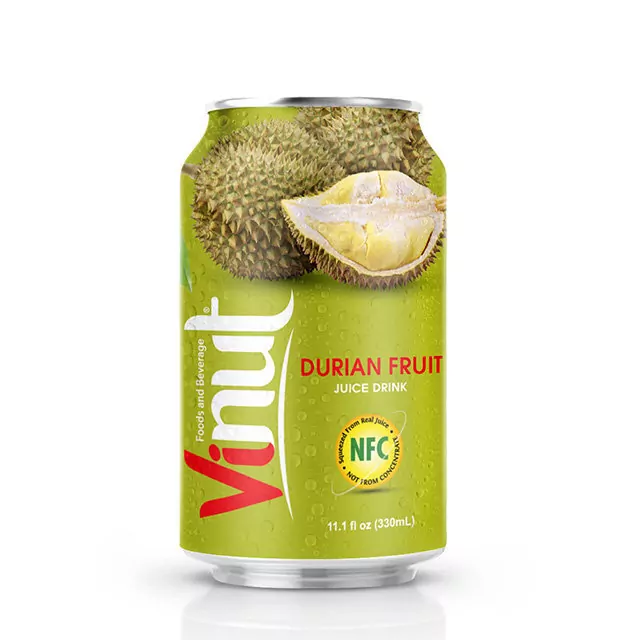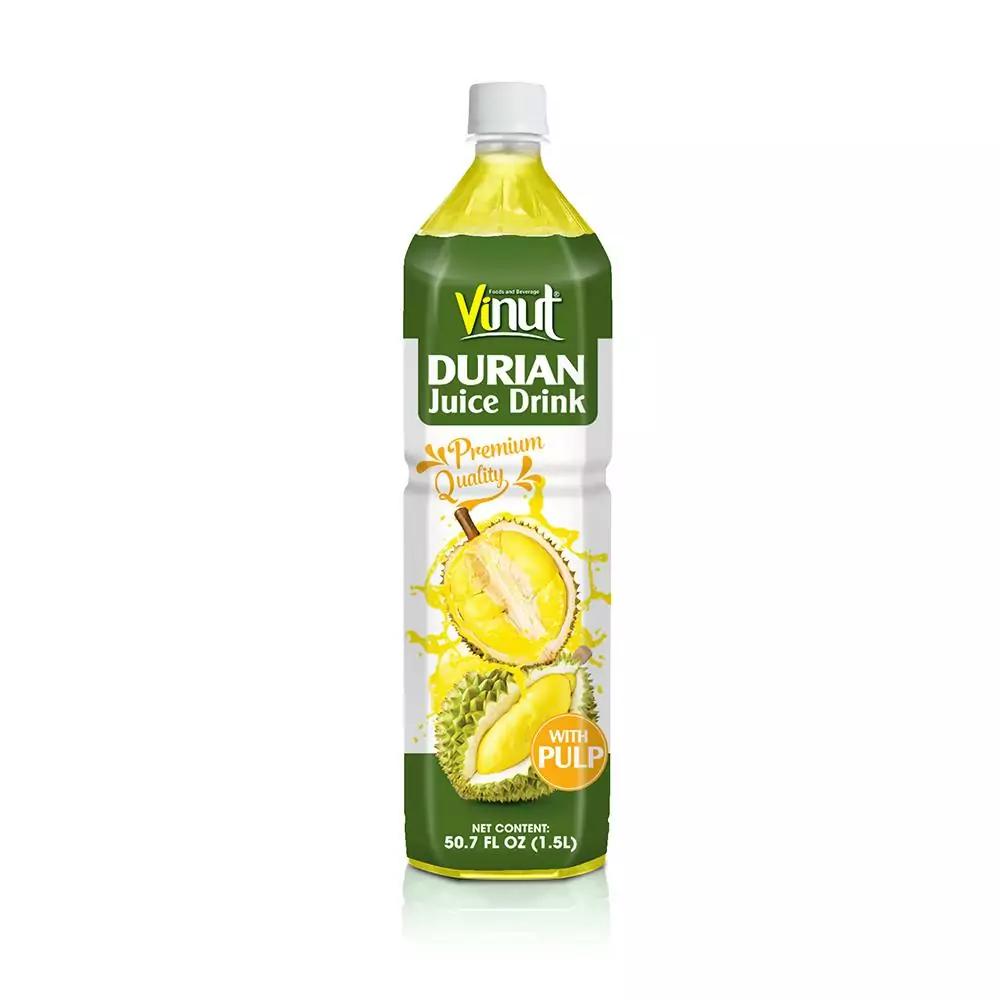The Health Benefits of Durian: A Nutrient-Dense Tropical Fruit
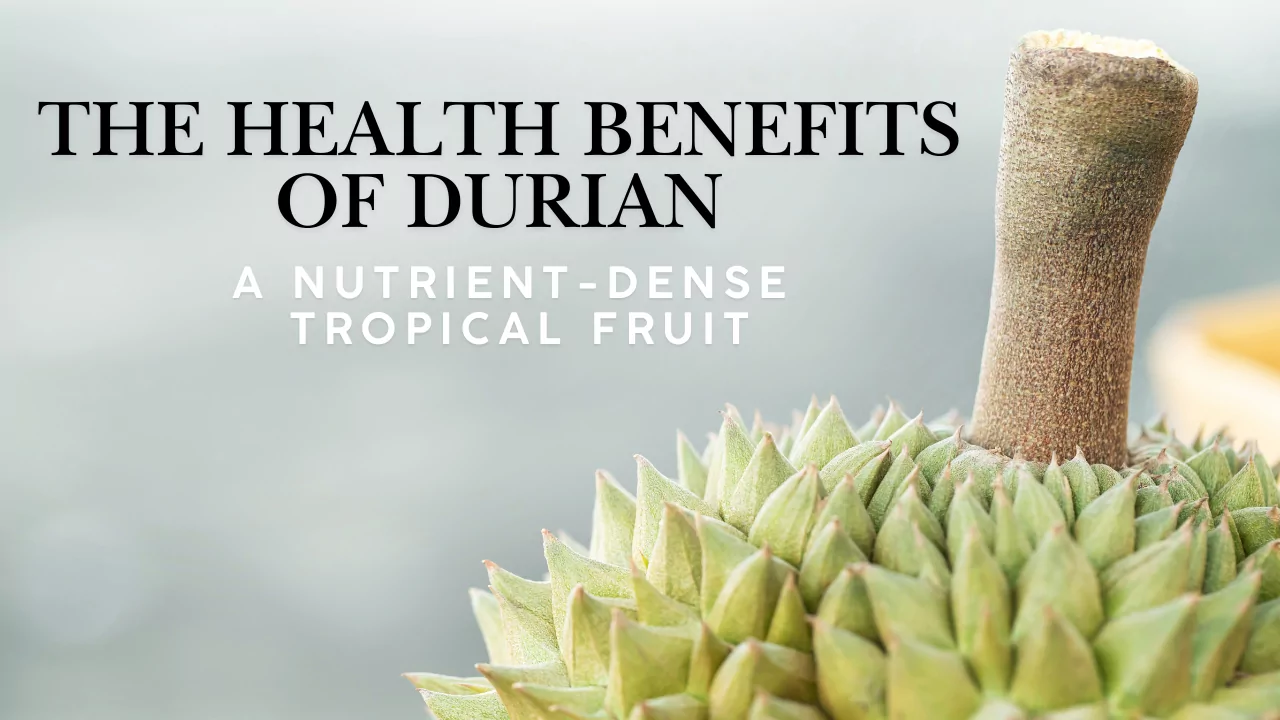
Summary
Durian, often dubbed the "king of fruits," is not only a tropical delicacy but also a nutritional powerhouse. Rich in carbohydrates, fiber, vitamins B and C, potassium, and antioxidants, durian supports a range of health benefits—from heart health and digestion to brain function and inflammation reduction. Though calorie-dense and naturally high in sugars, it can be a valuable addition to a balanced diet when consumed in moderation. This article explores the complete nutritional profile of durian and reviews current scientific findings on its health-promoting properties.
Introduction
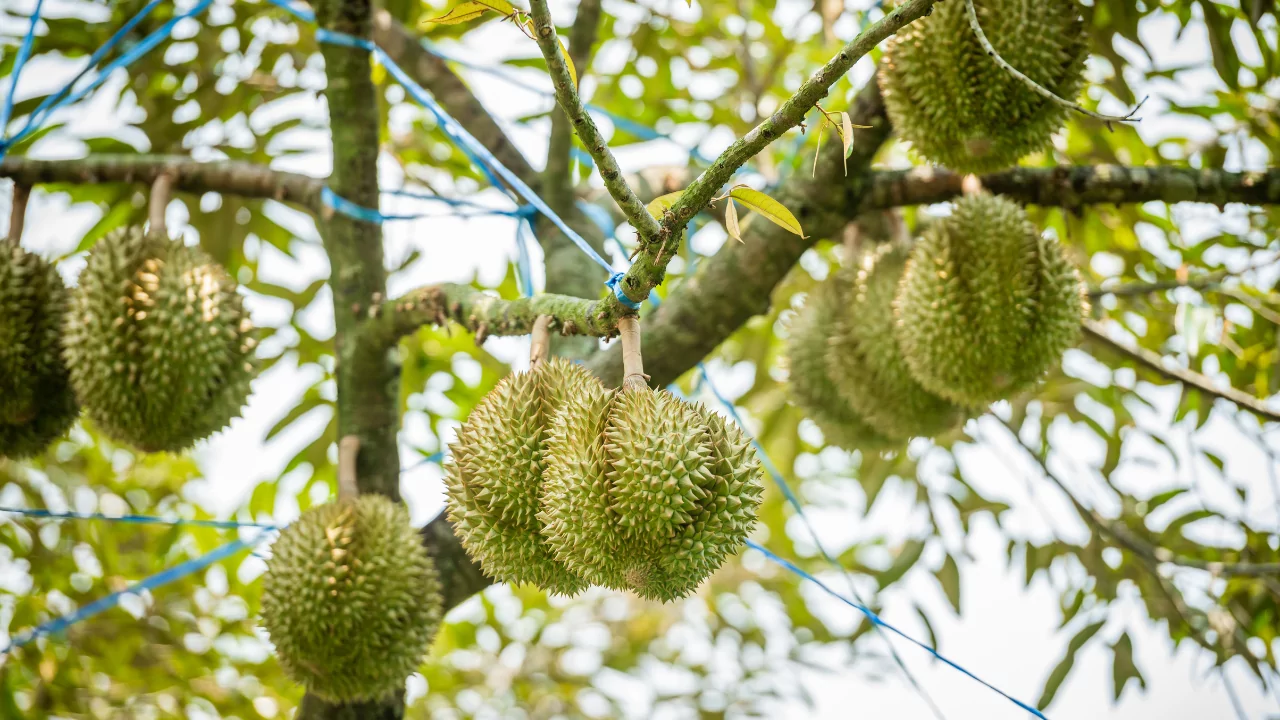
Durian (Durio zibethinus), often referred to as the "king of fruits," is a tropical delicacy renowned for its distinctive aroma, spiky exterior, and creamy interior. While its strong smell can be polarizing, durian is highly valued not only for its rich flavor but also for its impressive nutritional composition. In recent years, research has shed light on the various health-promoting properties of durian, making it a valuable addition to a balanced diet.
Nutritional Profile of Durian (per 100g of edible flesh)
Calories: ~147 kcal
Carbohydrates: 27.1 g
Sugars: ~19 g
Dietary Fiber: 3.8 g
Fat: 5.3 g
Protein: 1.5 g
Vitamin C: 19.7 mg (33% DV)
Vitamin B1 (Thiamine): 0.37 mg (31% DV)
Vitamin B6 (Pyridoxine): 0.32 mg (25% DV)
Potassium: 436 mg (12% DV)
Magnesium: 30 mg (8% DV)
Iron: 0.43 mg
Calcium: 6 mg
Phosphorus: 39 mg
Folate: 36 mcg
Note: Values may vary slightly depending on variety and ripeness.
Health Benefits of Durian
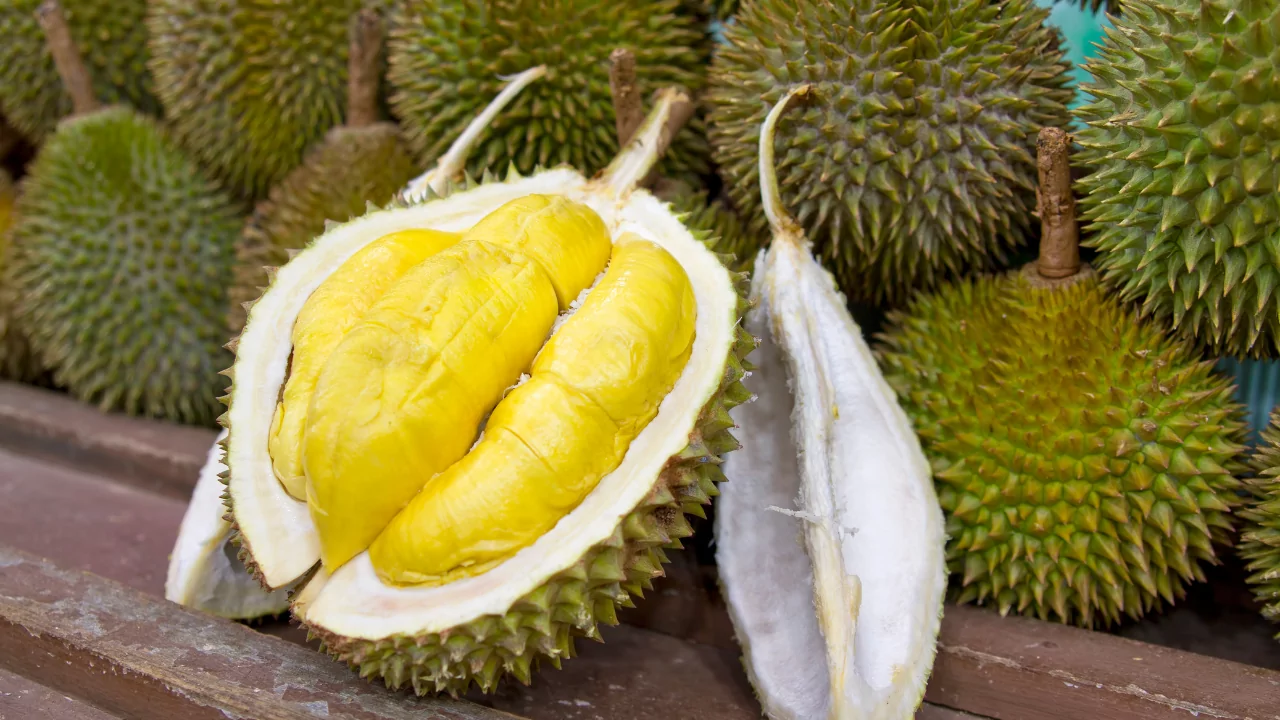
1. Rich Source of Antioxidants
Durian contains various bioactive compounds, including flavonoids, carotenoids, and polyphenols, which contribute to its antioxidant capacity. These compounds help neutralize free radicals, potentially reducing oxidative stress, inflammation, and the risk of chronic diseases such as cancer and cardiovascular disease.
2. Heart Health Support
Durian is a good source of potassium, a mineral essential for regulating blood pressure. A potassium-rich diet can help lower hypertension and support cardiovascular health. Additionally, the fruit’s dietary fiber and antioxidant content further promote healthy blood vessels and reduce cholesterol levels.
3. Improved Digestive Function
With nearly 4 grams of fiber per 100 grams, durian aids in digestion by promoting regular bowel movements and supporting a healthy gut microbiome. Fiber also helps control blood sugar levels and may reduce the risk of colorectal cancer.
4. Energy Boost and Satiety
Durian’s high carbohydrate content provides a quick energy source, making it ideal for active individuals. The combination of natural sugars and fiber slows digestion, contributing to prolonged energy release and enhanced satiety.
5. Neuroprotective Properties
Durian is rich in B-vitamins, especially B6 and thiamine, which play critical roles in brain health and neurotransmitter function. Adequate B6 intake is associated with improved mood, cognitive function, and a lower risk of neurodegenerative conditions.
6. Anti-inflammatory Potential
Preliminary studies indicate that durian extract may exhibit anti-inflammatory properties by inhibiting pro-inflammatory cytokines. Although further research is needed, these findings suggest that durian could have applications in preventing or managing inflammatory diseases.
7. Natural Source of Folate
Folate (vitamin B9) is essential for DNA synthesis, cell division, and fetal development. Durian provides a moderate amount of folate, supporting maternal health and reducing the risk of neural tube defects during pregnancy.
Considerations and Moderation
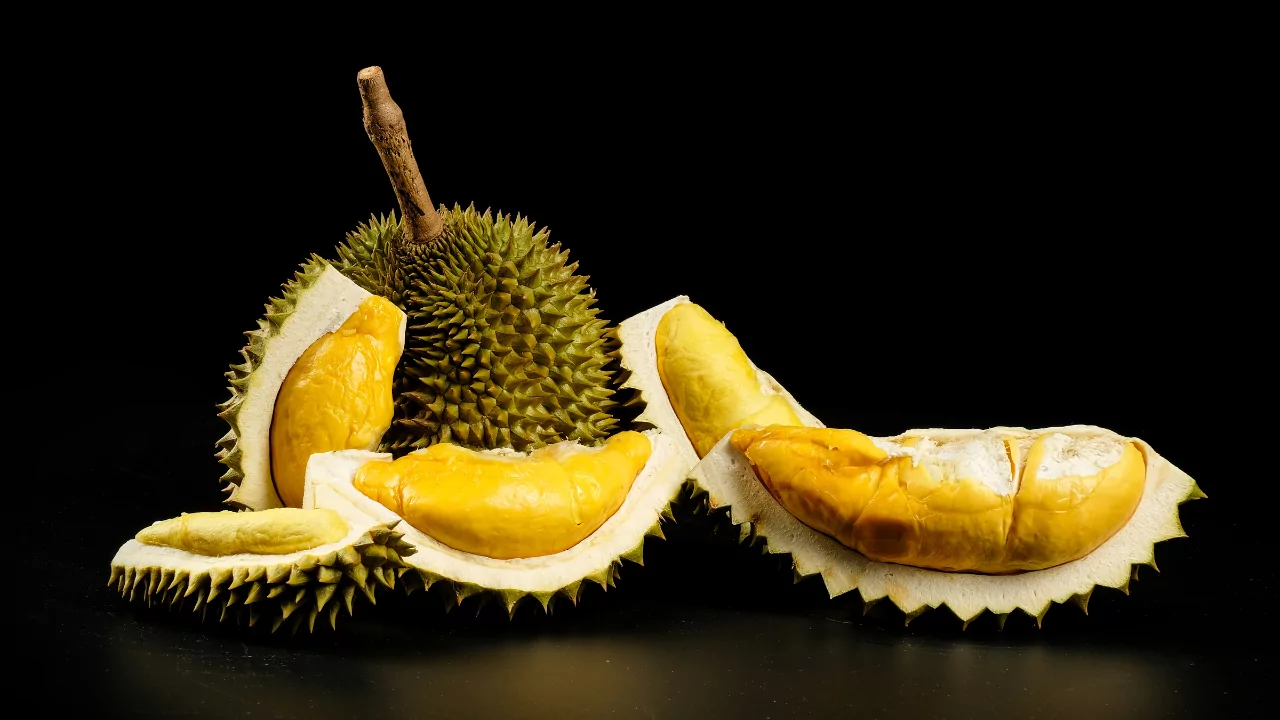
Despite its benefits, durian is relatively high in calories and natural sugars. Individuals with diabetes or those on energy-restricted diets should consume it in moderation. Additionally, anecdotal concerns about durian interacting with alcohol lack sufficient scientific evidence but merit cautious consumption due to its sulfur content, which may inhibit aldehyde dehydrogenase activity.
Conclusion
Durian is a nutrient-dense fruit that offers a wide array of health benefits, from supporting cardiovascular and digestive health to providing antioxidant and anti-inflammatory effects. Its rich supply of vitamins, minerals, and bioactive compounds makes it a valuable part of a varied diet. While its aroma may deter some, its health-promoting potential makes it well worth considering for inclusion in a balanced, plant-based nutritional plan.

